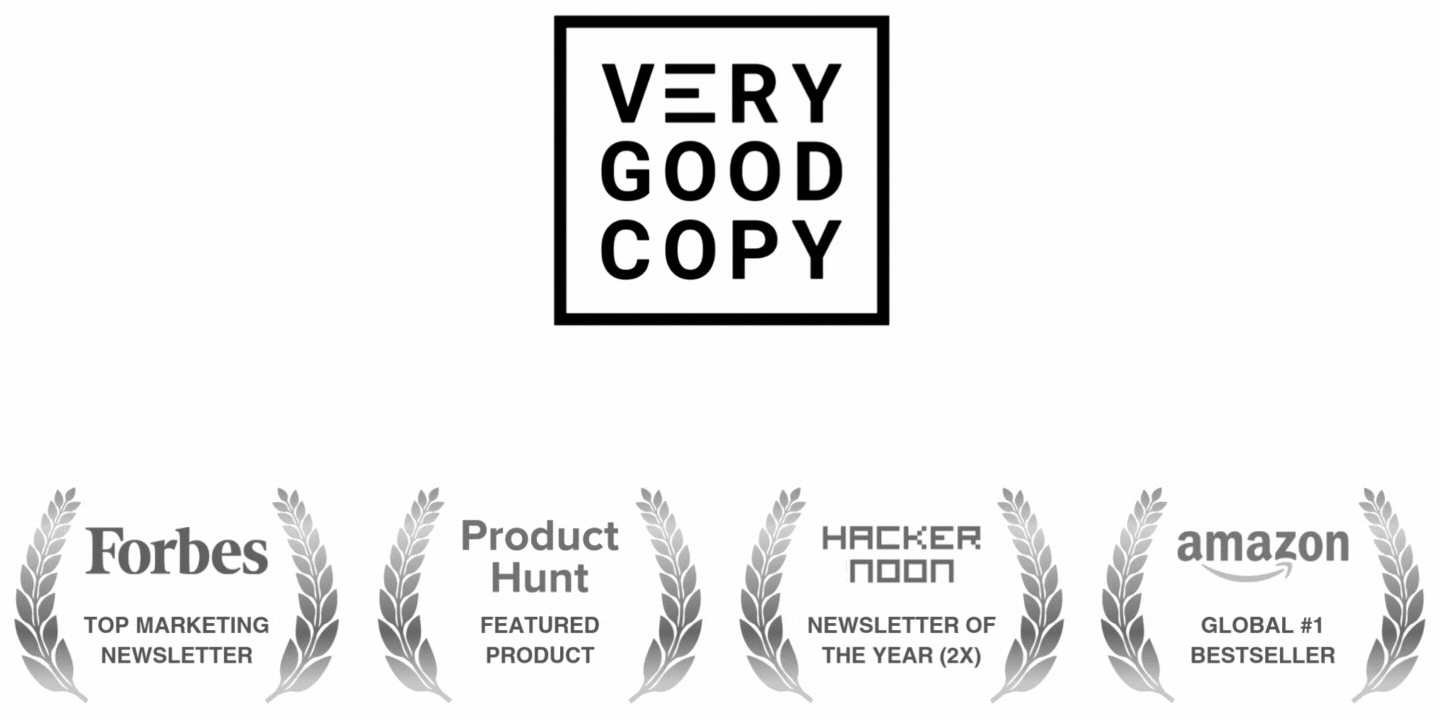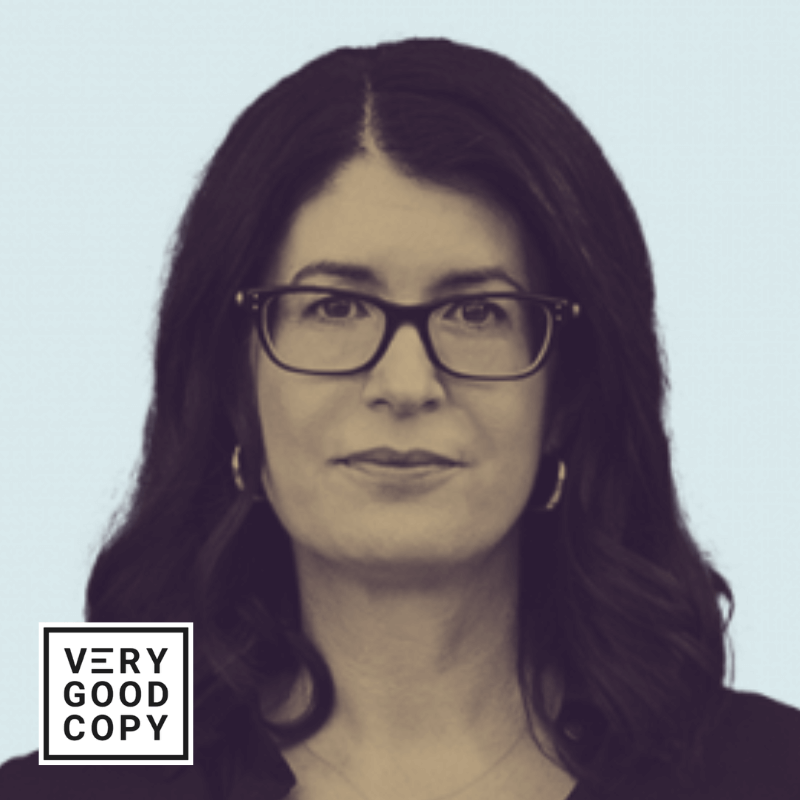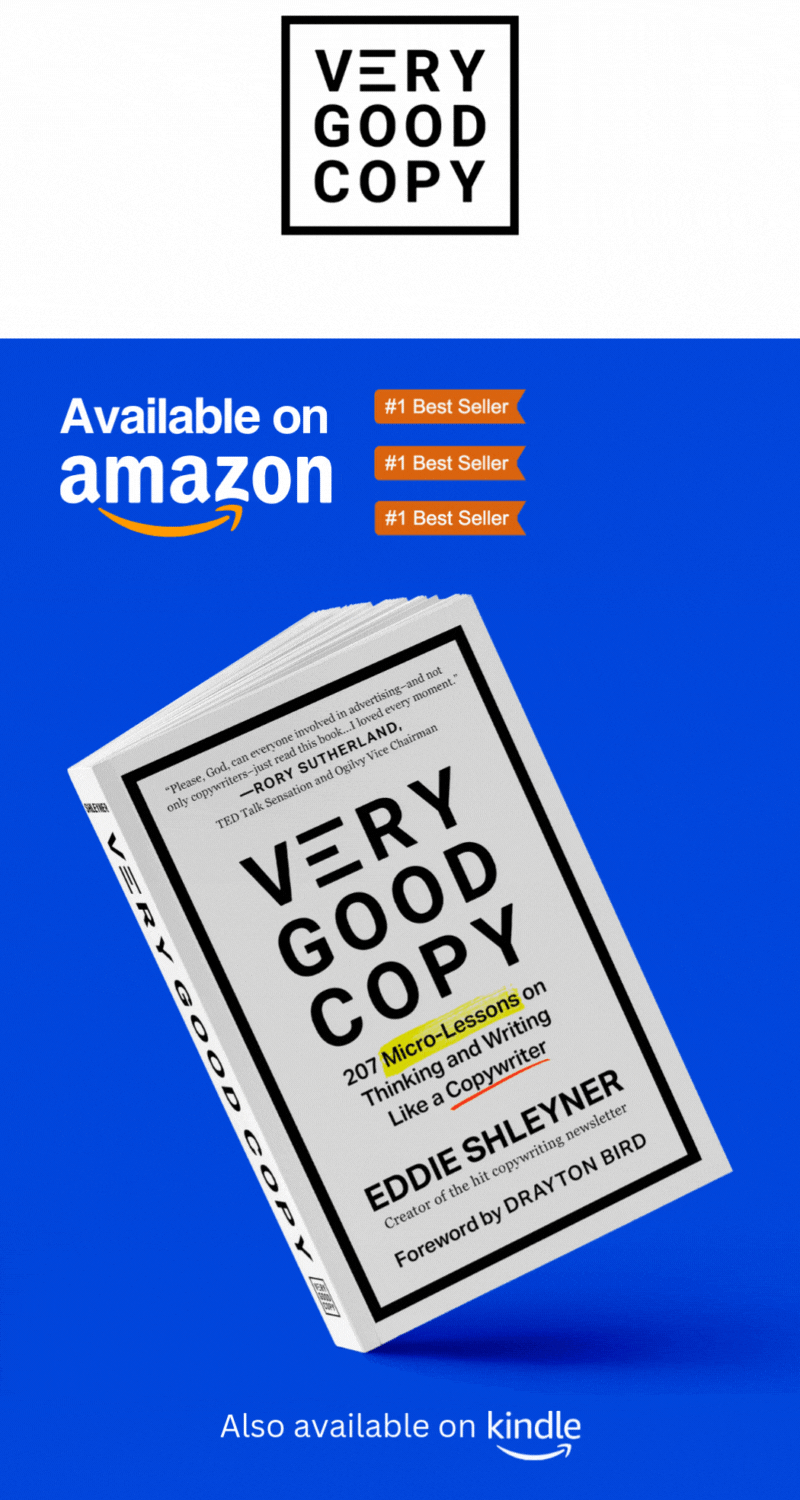EDITOR’S NOTE:
I met Lisa Pierson at HubSpot’s INBOUND conference a few years back.
She gave a talk on copywriting.
“And that’s that,” she said, closing the presentation. “Thank you all for coming.”
I stood up — along with everyone else — and clapped. Lisa smiled as a line of people formed to meet her and ask her questions. I got in line.
“Hello,” she smiled.
“Hello,” I said. “GREAT talk.”
Lisa and I have been in touch ever since. And I’ve enjoyed following her career from freelancing, to in-house at CopyHackers, to her new startup, FastCopy.
Now I’m grateful she took the time to share her wisdom and expertise in a new Micro-Interview with VeryGoodCopy.
In only 392 words, Lisa shares:
Why every copywriter should read fiction…
A how-to-learn-copywriting shortcut (that actually works)...
The creative benefits of checking Slack and email first thing in the morning…
And more…
Enjoy!
Instantly get 6 “micro” courses and series about copywriting when you subscribe to the VeryGoodCopy newsletter for free. Plus...enjoy new content every week. Learn more →
Thank you, Lisa.
Let’s get started.
1) “What’s your work routine?”
I get up, check Slack/email, then go for a run. If I don't run, then it's an online workout. I need to move for an hour before I start my day.
I know you're not supposed to check email or slack when you get up, but I do it for two reasons.
1) I have clients in different time zones and I don't want to be a bottleneck with anything.
2) If I see any problems, then my brain will work on it while I'm running — I don't always solve it by the end of my run, but I'm further ahead than if I didn't.
I'm usually at my desk by 8 am with my beet smoothie (it's better than it sounds) and coffee.
2) “What do you know about your work now that you wish you’d known when you first started?”
That despite learning more and getting stronger, it doesn't get easier. There's always new challenges and new learning — about yourself and your work.
3) “What did your biggest professional failure teach you?”
Oh, there's so many to choose from. But, I would say that failures are never as bad as you think they are in the moment. We judge ourselves more harshly than we judge others. With time and learning we recover, get stronger and become more interesting.
4) “What’s the #1 thing that has helped you shorten your craft’s learning curve?”
I joined a mastermind.
A good one. I don't usually buy into shortcuts — learning always takes a long time. But being in a situation with people who challenge you is a great way to help you learn quickly.
5) “What book has helped you the most over your career?”
There are too many books to name, but the books that help me the most are fiction. It puts you in the minds and experiences of other people, which is what you need to do as a copywriter. Decisions that may seem bizarre from the outside can become clear when you're let in on their thoughts, backgrounds and experiences. Having the awareness of people's inner lives is so important as copywriters (and as human beings).
I do have some favorite non-fiction books that I return to again and again.
Wired for Story by Lisa Cron
Just Listen by Mark Goulston
Habits of a Happy Brain by Loretta Graziano Breuning
6) “And your parting piece of advice?”
Write it again.





